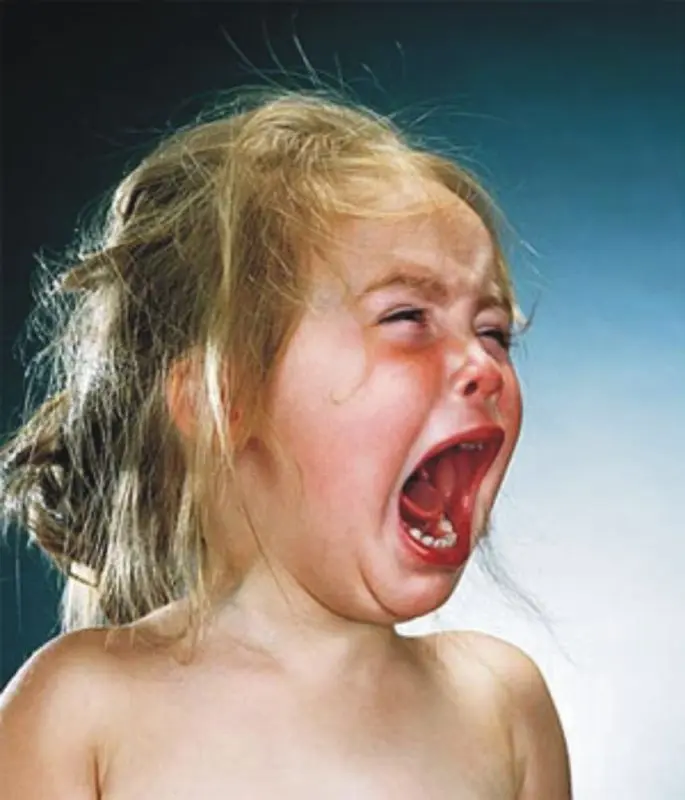Hysteria refers to the varieties of neurosis, which is quite often observed in children. According to IP Pavlov, hysteria is characterized by functional weakness of the cerebral cortex with a predominance of subcortical impulses and weakness of the second signaling system.
Symptoms of hysteria in children

According to the research of G. E. Sukhareva, hysteria in children is often accompanied by astasia-abasia, which is characterized by movement of arms and legs with a complete unwillingness to walk or stand. In young children, affective states may appear, which are accompanied by outbursts of anger and anger. Such seizures can end in convulsions, they are classified as affective-respiratory. The disease can be manifested by paralysis of the limbs, refusal to stand and walk, impaired auditory and visual perception, mutism, increased ventilation of the lungs. Similar symptoms of hysteria can also occur in older children. The disease is characterized by theatrical movements, massiveness of symptoms. At the same time, there are no signs of organic brain damage. Paralysis does not correspond to the localization of the lesion from the point of view of anatomy, there may also be major seizures that differ in clinical manifestations from epileptic ones, and no characteristic changes are observed during the EEG.
Psychological research makes it possible to detect in the patient the features characteristic of the hysterical type: the desire to be in the center of attention, vulnerability. Children demand more attention than they deserve. The desire to demonstrate oneself comes down to the above signs and somatic diseases, hysteria also manifests itself in the unexpected behavior of a child among people, inventing curious stories, embellishing reality, oneself, slander without any reason.
Treatment of hysteria in children
Treatment of hysteria in children, as with other physical disorders, is often surprisingly effective. Simple suggestions, false injections using placebo, inpatient treatment for several days are beneficial.
The greatest problem arises with the right direction in raising children with hysterical character traits, in which case it is sometimes necessary to involve a specialist.
The course of the disease largely depends on how much it was possible to save the child from a traumatic situation or protect him from the effects of adverse factors. Prolonged and repeated mental trauma often causes a protracted course of the disease, accompanied by frequent relapses.









